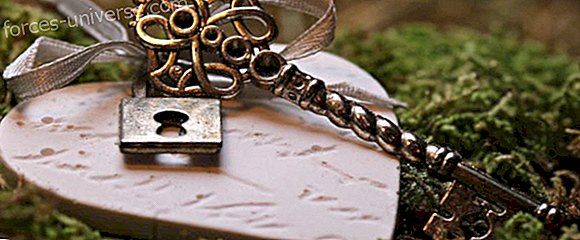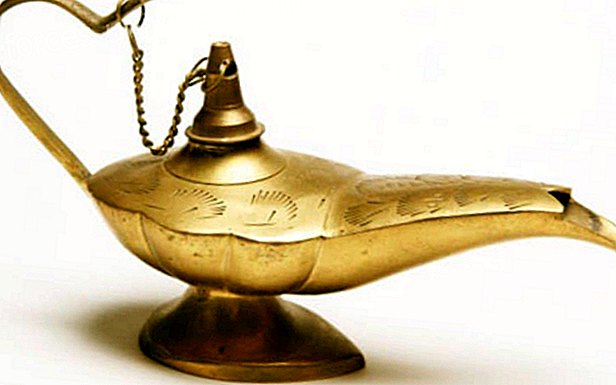Egyptian astrology summarizes the belief and observation system of the celestial bodies of ancient Egypt, from its beginnings to our era.
Since its inception, humanity has looked up to heaven in the search for knowledge and the answers to the meaning of life and death. And the belief that the stars contain these responses seems to have been fixed naturally in the human brain, since all the great civilizations have systematically reflected their wisdom in their different astrological systems, each of them nuanced with their customs and its peculiarities

This is how traditional astrology has come to us, whose origin dates back to the ancient Babylonian civilization. But it is known that the ancient Chinese, Hindus, Mayans, Egyptians and Europeans also came to compose their respective belief system.
Celestial objects have always been associated with divinity and each of them has shaped the image of some particular deity. All ancient cultures, and the Egyptians were no exception, sought in the sky explanations for climatic changes such as seasons, rains and droughts and tides. They were not wrong, since in fact the movement of the Earth and its position with respect to the Sun.
They also sought to bring order to their lives, by creating calendars to keep track of all the important events in existence: the time of birth, age, date of death, duration n of the reigns and religious holidays.
Astronomy and astrology in ancient Egypt
There is evidence that Egyptian astrology was one of the tools available to the pharaohs to carry out the exercise of government. The ancient Egyptians shared in their own way this common belief that the position of the stars influenced not only the seasons and the weather, but also the personality and destiny of the Humans.
Given the long period of time this civilization lasted, it is natural that along with their own observations, they also collected ideas from other cultures with which they maintained contact.
The beginning: the megaliths of Nabta Playa
It is believed that the Egyptians reflected their first observations of the sky in the megalithic monuments of Nabta Playa, well south of Egypt, in what was perhaps a calendar to mark the beginning of the rainy season. This circle of oriented stones marked the position of the stars and was intended to serve as a guide for those who traveled in the desert. The megaliths of Nabta Playa are even older than those of Stonehenge.

Astronomical events such as the appearance of Sirius on the eastern horizon, just before the sun rose, marked the flood season of the Nile, of great importance for agriculture. It is a fact that the great pyramids were built in alignment with the stars, such as the great pyramid of Gizeh, which is aligned with the Polar star.
As for the belief that the stars marked in some way the personality and destiny of the people, most experts agree that it was the Hellenic influence, product of the conquests of Alexander, that brought astrology to Egypt. The Greeks in turn had acquired this knowledge from the Babylonians.
In this way the traditional zodiac constellations, which we know today, were added to the ancestral knowledge of the Nile lands, thus creating Egyptian astrology.
The Dendera Zodiac
This is what the low relief called the Dendera Zodiac, discovered during the time of the Napoleonic campaigns, suggests in the temple of Hathor in the city of Dendera, present-day Egypt. And from this Egyptian archaeological piece derives the idea that what is now known as Egyptian astrology.
The Dendera zodiac is currently exhibited in the Louvre museum. It shows clearly Greek influences in combining constellations and Egyptian symbols with Greek symbols, probably imported to Egypt around 300 BC.

Perhaps this is why it is sometimes confusing to find out about the dates and deities that protect each zodiac sign in Egyptian astrology. There are several lists of signs that associate a deity with a particular date.
The birth deity and Egyptian astrology
According to the Egyptian astrological system, each person is born under the protection of a deity according to their date of birth, although not necessarily every sign is associated with a zodiac constellation of which they are currently known.
The one shown below is one of several versions of the Egyptian zodiac that are known today, in which the influences of Babylonian or traditional astrology are clearly distinguished in Egyptian astrology.
However, the ancient Egyptians had named many constellations, associating them with their gods and their characteristics. For example, the Big Dipper was the Thigh of Seth, god of chaos, while the Little Bear was the jackal of Seth, a terrifying creature whose goal was to cause the ruin of the gods of light.
Bastet (January 16-February 15)
Bastet is the beautiful goddess symbolized by the cat. It is said that those who were born under their patronage have an agile mind, are diplomats, love their independence and mysterious things, but do not like to follow orders or endure strict schedules or having to carry out routine tasks.
Selket (February 16 - March 15)
Selket's children are persevering, supportive, obstinate and in some cases introverted. This sign gives their natives great physical strength, although sometimes they find it difficult to make decisions and their natural modesty sometimes does not allow them to recognize their own value. They must take care not to fall into extremes with prejudices.
Apep (March 16 April 15)
People who have been born under this sign have a great capacity to summon, are sagacious, intrepid, cunning and have great confidence in themselves. They have a great ability to solve problems, but they can become selfish and take pride in their achievements.
Ptah (April 16 May 15)
Those born under the aegis of Ptah love beauty, luxury and beautiful things. They have a natural tendency to be cheerful, mundane and have a natural sense of elegance. Very diplomatic and sociable, they are given to the good life and must be careful not to fall into excesses like gluttony and laziness.
Atum (May 16 June 15)
The natives of this sign have a great capacity for abstraction and concentration . They are also very independent, communicative and curious, so they have great skills for research, although sometimes their behavior can be selfish, reaching the point of being irrational.
Isis (June 16 July 15)
In Egyptian astrology, Isis is the goddess of life and beauty, and those born under her sign love life and nature. They are extremely romantic and very understanding and kind. Being born on these dates foreshadows positive aspects regarding the material, however the natives of this sign can be very spiteful at times.
Ra (July 16 August 15)
Ra is the sun god and confers those born under the leadership and ability to achieve positions of authority . They are creative and generous people, they know how to lead and can be persuasive and brilliant speakers, although they must control their tendency to exaggerate or dramatize some things, in addition to their vanity.

Horus (August 16 - September 15)
Those born on these dates are hardworking, sincere, generous, responsible and above all balanced. They also have an analytical mind and great ability to analyze problems from different points of view. Since they are very confident, they may occasionally have disappointments and should be careful how they spend their money.
Maat (September 16 - October 15)
Maat's children are charming, optimistic, cunning and confident. They tend to have good character and be romantic, with great ability to appreciate art, but sometimes others take advantage of their natural benevolence, which can lead to stress and frustration, so it is recommended that they learn to say no once in a while .
Osiris (October 16 - November 15)
Osiris is the god of death and represents the will and leadership. Those born under the protection of Osiris are ambitious, fair, loyal and sincere. They are also extremely protective, being able to become possessive. They must learn to control their character, because sometimes they are given to outbursts and impatience.
Hator (November 16 - December 15)
The natives of this sign have a lot of energy, they love travel and as a rule they are very sociable. They also like to acquire knowledge and share it with others. They are fearless, proud and optimistic, and sometimes that makes them harbor feelings of superiority to others.
Anubis (December 16 - January 15)
Traditionally associated with the underworld, both in religion and in Egyptian astrology, the god Anubis confers to those born under his patronage great courage, strength and skills for fighting, well balanced with a great sense of peace. They are persistent and hardworking, although many times they become pessimistic and too serious.
References
- Astronomy of the Egyptians. Recovered from: astrojem.com.
- Holloway, April. Nabta Beach and the Ancient Astronomers of the Nubian desert. Recovered from: ancient-origins.es.
- Lewis, James. The Astrology Book. Ed. Detroit.
- The Egyptian Horoscope. Recovered from: magichoroscope.com.
- Verdu, F. The bases of astrology in ancient Egypt. Recovered from: revistaesfinge.com






